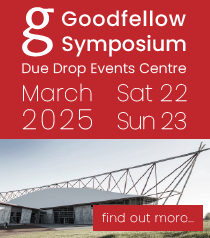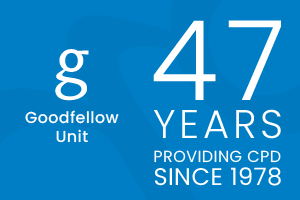A full online webinar day:
- A day of practice-changing New Zealand specific updates.
- 6 CPD points (RNZCGP) and up to 6 hours of professional development endorsed by the College of Nurses Aotearoa (NZ).
- All presentations include a q&a session.
- Access to webinar videos post event.
Programme
| TIME | TOPIC | SPEAKER |
| 08:30 | Welcome | |
| 08:40 |
Paediatrics
|
Sophie Mace |
| 09:10 |
Dermatology
|
AJ Seine |
| 09:40 |
ORL
|
Melanie Collins |
| 09:55 | Break | |
| 10:10 |
Older people
|
Ngaire Kerse |
| 10:40 |
Mental Health
|
Bruce Arroll |
| 11:10 |
Prescribing
|
Linda Bryant |
| 11:25 | Break | |
| 11:40 |
Cardiology and Stroke
|
Rachel Roskvist, Ralph Stewart |
| 12:10 |
COVID-19
|
Mark Fulcher |
| 12:35 |
Endocrinology
|
Megan Olgivie |
| 12:55 | Break | |
| 13:25 |
Menopause
|
Samantha Newman |
| 13:55 |
Vaccinology
|
Nikki Turner |
| 14:25 | Break | |
| 14:40 |
Sexual health
|
Rose Forster |
| 15:10 | Primary care snippets | Bruce Arroll |
| 15:20-15:30 | Wrap up |
Registration
You need to register in advance for this event. Click the "register now" button below to register and pay via The University of Auckland Eventsair page.
The cost for this event is:
| $350 | Doctor |
| $250 | Nurse Practitioner |
| $150 | Nurse/Nurse Prescriber, Pharmacist, Registrars and other allied health professionals. |
Costs are GST inc, and you will receive a receipt once your payment is processed.
Full instructions to access the webinar will be emailed to you closer to the date.
Now Closed
Topic: Paediatrics: The first 1000 days
The first 1000 days of a child's life, from conception until the second birthday, represents a time of incredible brain development for a pēpi. The "nurture" part of "nature vs nurture" starts here, so a child's experiences will set up how they experience and interpret the world as they grow older. Sophie will be talking about the importance of a child's mental, emotional, relational and physical health and wellbeing in this critical period, ways to recognise when this is at risk, and what to do about it.
Topic: The sun and ageing of your skin: sunscreen does more than prevent cancer + general update in dermatology
We all know the importance of sunscreen to prevent skin cancer, however, the sun is responsible for significant changes in the skin resulting in loss of elasticity and dermal structural support leading to photoageing beyond your chronological age. This talk will look at the science of sunscreen - physical vs chemical blockers, the mechanism of ageing caused by the sun and how we can try and prevent this in our patients - it's more than just skin cancer protection. We'll also have a short update on what is new in dermatology relevant to GPs.
Topic: Sudden sensory hearing loss
Sudden sensorineural hearing loss is uncommon but not rare, needs to be recognised early and documented with audiometry. Melanie presents an update on the best practice of SSHL. Assessment, management and treatment of this condition to optimise outcomes.
Topic: Allergic rhinitis
Allergic rhinitis is an extremely common condition that can usually be managed successfully with medications. Some cases are recalcitrant and require other treatment modalities such as immunotherapy or surgery. Allergic rhinitis is almost universally concomitant with cases of atopic asthma, and the treatment of allergic rhinitis can often improve asthma control.
Topic: Prescribing update
This is a short, headlines-style update of five prescribing issues in primary care - what’s new, what’s changed, what’s controversial.
Topic: The failing heart
An update on recent advances in heart failure management for primary care practitioners. Several new international guidelines for the management of heart failure have been released in the last year. LVEF is key to classifying HF and guides treatment. Guideline directed medical therapy with disease-modifying medications is critical for HFrEF and for HFmrEF. There is emerging evidence for some pharmacological management options in HFpEF – an increasing group of patients, but symptomatic management and addressing comorbid and causative conditions remains paramount.
Topic: Stroke prevention – what matters most
This presentation will summarise the latest best practice guidelines for stroke prevention and highlight high yield areas for maximal impact in stroke prevention in primary care. A special focus on high-risk populations will be included.
Topic: COVID and exercise - what you should be recommending and why
Physical activity is beneficial and all patients should be encouraged to remain active if possible, and most patients can safely return to sport and ‘training' once their symptoms have resolved. Patients with persisting symptoms need a more comprehensive assessment which may include cardiac investigations.
Topic: RED-s
Megan will discuss relative energy deficiency in sport (REDs) particularly focused on the school-aged athlete. Megan will cover a definition of REDs, why this is so prevalent in this age group and the challenges to be considered when supporting this age group to become healthy once more.
Topic: Understanding the menopausal transition: perimenopausal and genital health
Perimenopause is a term which occurs commonly in the social vernacular. But what does it actually mean? And how can you help women who think that they are perimenopausal?
Samantha will review the physiology of the menstrual cycle, with the changes that occur in estrogen and progesterone in the perimenopause and menopausal transition. We will cover the role of hormone replacement therapy to support this transition, look at how it can be beneficial in physical and mental health and improve long term health outcomes. A taboo subject in womens health is vulval and vaginal symptoms, which includes the implication of oestrogen deficiency. I will review what happens in hypoestrogenic states and some management strategies.
Topic: Private vaccination conversations
There are private market vaccines that are of benefit – particularly consider meningococcal vaccines, the new shingles vaccines, different types of flu vaccines, and other vaccines for people outside the funded age ranges. It is difficult to know how to; fairly and equitably inform all our patients of the potential vaccines available and we cannot assume those on low income would not wish to pay for private market vaccines.
Topic: Are you "prEP" ared?
Rose will discuss PrEP and PEP prescribing, including the widened access criteria that are coming into effect from 1st July.
Recognition of Learning Activities
The Goodfellow Unit Primary Care Update has been endorsed by The Royal New Zealand College of General Practitioners (RNZCGP) and has been approved for up to 6 CME credits for Continuing Professional Development (CPD) purposes.
Video access:
Registrants of this event will see the video below once they are logged in to the website.
Presenter
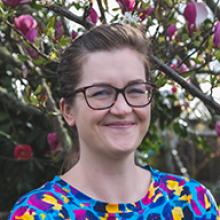
Sophie Mace
Dr Sophie Mace (FRNZCGP) is a GP specialising in maternal & infant care, especially breastfeeding, sleep, and infant mental health. As well as working as a rural GP in Motueka, she is the founder of Aotearoa Baby Clinic, a private clinic specialising in maternal and infant care.
Sophie has done post-graduate training in women's health, lactation, and infant mental health and is accredited in neuroprotective developmental care (NDC, or the "Possum's" approach). She is the primary care lead for the NMDHB and South Alliance Alliance's infant mental health groups, is a member of the Perinatal Anxiety and Depression Aotearoa (PADA) clinical advisory board, and sits on the Possum's Clinic's Education and Fellowship committees.
Presenter

AJ Seine
AJ is currently undertaking a Mohs micrographic surgical fellowship in Tauranga at the Skin Centre. He has a strong interest in education for primary care providers as he believes good basic dermatology knowledge in this forum can make a significant difference to health outcomes for the general population.
Presenter
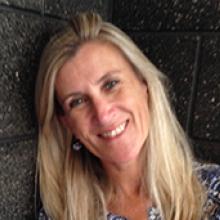
Melanie Collins
Dr Melanie Collins is an ENT surgeon specializing in adult and paediatric Otology. Her current appointment is at North Shore Hospital, Auckland and she is one of the adult implant surgeons on the Northern Cochlear Implant Programme. She qualified in London and completed her Otolaryngology training in the UK and a Neuro-otology Fellowship in Adelaide. She moved to NZ with her family in 2011.
Presenter
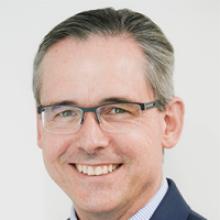
Richard Douglas
Richard is an ORL surgeon whose subspecialty is rhinology. He has a particular interest in endoscopic sinus and medial skull base surgery. He is currently a Professor in Surgery at the University of Auckland and a Consultant Surgeon at Auckland City Hospital, and has a private practice at Mauranui Clinic in Epsom. He trained and practised as a clinical immunologist and allergist at Auckland City Hospital before undertaking training in ORL.
His research focuses on the interaction between the local immunity of the nasal and sinus mucosa and the bacteria that cause chronic rhinosinusitis. This condition is characterised by its intractability despite treatment with prolonged courses of antibiotics.
Presenter
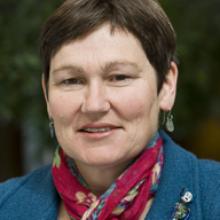
Ngaire Kerse
Ngaire Kerse is a GP in Auckland, Joyce Cook Chair in Ageing Well and Professor of General Practice and Primary Health Care, University of Auckland.
Ngaire is a member of expert advisory and steering groups for the Health and Quality Safety Commission on preventing harm from falls, the Ministry of Health on comprehensive assessment techniques and the roll-out of the InterRAI. She leads the AWESSoM National Sci4ence Challenge Ageing Well programme and works as a GP at the Auckland City Mission.
Presenter
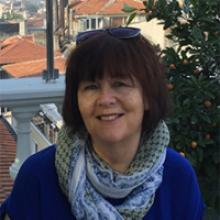
Linda Bryant
Linda is a pharmacist prescriber working at Newtown Union Health Service and Porirua Union and Community Heath Service. She has taught postgraduate clinical pharmacy for over 20 years, and is currently a Honorary Academic at the University of Auckland.
Presenter
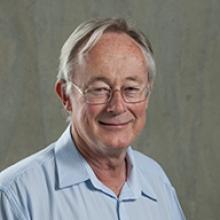
Bruce Arroll
Bruce spends three half days per week in clinical practice working at Greenstone Family Clinic in Manurewa in South Auckland. The rest of his time is spent at the Department of General Practice and Primary Health Care at the School of Population Health at the University of Auckland. He became the director of the Goodfellow Unit in 2014.
Presenter
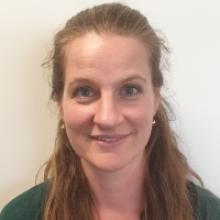
Rachel Roskvist
PGDipHlthLd, FRNZCGP, PGCertWHlth, MBChB, BHSc.
Rachel is a senior lecturer at The University of Auckland and also works clinically in general practice. She is a lecturer in the undergraduate medical program and is the lead for Year 5 General Practice attachments, she also teaches in the post graduate Quality in Healthcare paper. Along with Prof Ralph Stewart, Prof Bruce Arroll and Dr Kyle Eggleton, Rachel is writing a clinical update on the management of chronic heart failure in primary care.
Presenter

Ralph Stewart
Ralph is a cardiologist at Auckland City Hospital and the Auckland Heart Group. He is also an honorary Professor of Medicine at the University of Auckland, and previously chaired the National Cardiac Clinical Network and the NZ division of the Cardiac Society of Australia and Zealand. He has a broad range of clinical and research interests related to cardiology and systems of care.
Presenter
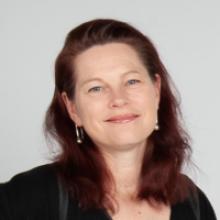
Anna Ranta
Anna is a Wellington-based academic neurologist whose research focuses on stroke care optimisation and reducing health inequities.
She is the Head of Department of Medicine at University of Otago, Wellington, leads the Wellington and Central Region Stroke services, the NZ National Stroke Registry, and recently the National Stroke Clot Retrieval Service Improvement Initiative. She is the immediate past Chair of the New Zealand National Stroke Network, the current President of the Neurological Association of New Zealand, the Treasurer of Stroke Society of Australasia, Board Member of the World Stroke Organization and Australian and New Zealand Association of Neurologists, and serves on the editorial boards of Stroke and Neurology.
Presenter
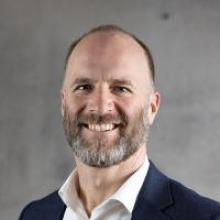
Mark Fulcher
Mark is a Sport and Exercise Physician and is the President of the Australasian College of Sport and Exercise Physicians.
He is the Managing Director at Axis Sports Medicine Specialists and is also the Medical Director at New Zealand Football. He has attended three Olympic Games and a number of FIFA World Cup competitions. Mark is involved with Sports Medicine education, regularly contributing as a guest speaker/lecturer at universities and sports medicine meetings around the country. He is a member of the FIFA Medical Committee and is the 'Editor in Chief' of the FIFA Medical Network. His research interests include football injuries, concussion and injury prevention. He works closely with ACC and is part of their Sports Collaboration Group, which releases guidelines such as the Concussion Services Guidelines for medical providers in NZ.
Presenter
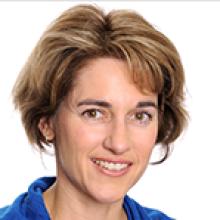
Megan Ogilvie
Megan is a reproductive and general endocrinologist working at both Fertility Associates and the Auckland District health board. In addition, Megan works as part of Whispa for High Performance Sport NZ and is on the medical advisory board of Talk Peach.
Megan has particular interests in athlete hormonal health, menopause and polycystic ovarian syndrome.
Presenter
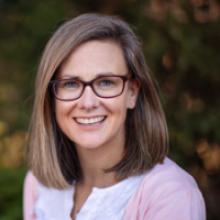
Samantha Newman
Samantha is the Clinical Lead for the GPSI Clinic in Prolapse and Continence at the HBDHB and is on the Sexual Assault Roster. Samantha meets regularly with Menopausal Specialists from the UK, and has attended virtual International Conferences on Vulval and Vaginal Health to support her practice. Samantha now runs her private clinic, with the help of a couple of employees, enjoys community education sessions, and practices family medicine at a local VLCA practice.
Presenter

Nikki Turner
MBChB., Dip Obs Auck., DCH London., FRNZCGP., MPH Hons MD Auck.
Nikki is an academic General Practitioner and an Associate Professor in the Department of General Practice and Primary Care, University of Auckland. Her interests are in immunisation, child poverty, primary and public health care. She lives in Wellington and works part-time as a GP at NUHS Broadway Clinic.
Presenter

Rose Forster
Rose is a sexual health physician at the Auckland Sexual Health Service and is also working with Burnett Foundation Aotearoa (formerly New Zealand AIDS Foundation) to produce online resources aiming to support primary care clinicians to prescribe PrEP.
